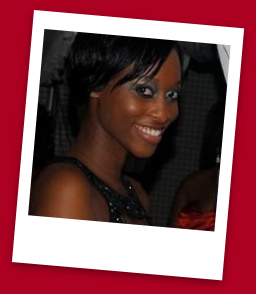"Misconceptions passed off as truth on blogs and gossip sites"
August 14 There is so much more to Caribbean carnival than beads, costumes, feathers and drinking alcohol, just like there is much more to festivals and rituals celebrated in any other part of the globe, explains Leigh-Ann Worrell, 23, a Commonwealth Correspondent from St Thomas, Barbados.
There is so much more to Caribbean carnival than beads, costumes, feathers and drinking alcohol, just like there is much more to festivals and rituals celebrated in any other part of the globe, explains Leigh-Ann Worrell, 23, a Commonwealth Correspondent from St Thomas, Barbados.
Caribbean people burst with pride about various aspects of our life and culture: warm people and weather, gorgeous beaches that stretch for miles and infectious beats, whether they may be reggae, dancehall, soca or zouk.
And then there is carnival: sweet, sweet carnival.
Although some may be more recognised and frequented than others, each territory has its time to “dance and dingolay” on the streets to the beats of their island’s hottest tunes.
But does the western world understand this unique expression of our culture? Or is it ignored because of our geographic location, castigated as a debased, hedonistic festival from “those island people?”
These questions came to mind after I watched the circus of commentary, generated from pictures of homegrown Barbadian superstar Rihanna enjoying herself at Kadooment (the street carnival signalling the end of Crop-Over festival season) surfaced at the beginning of August.
Her costume was described by some sites as “traditional dress” (it’s not), while others said she donned the “get-up” because she was no stranger to “edgy clothes” (to be clear, several other females were wearing the SAME costume as Rihanna).
Shots of her bumping and grinding (we call it “wukking up” in Barbados) on men – and even some women were used as examples of how “island people” just loved to party wildly while drinking, with NSFW (not suitable for work) warnings attached to the pictures.
Then there were the misconceptions passed off as truth on blogs and gossip sites, like how we make sacrifices at the end of Crop-Over and suppositions about what Barbados “harvests” (FYI, it’s sugar cane, even though it is in sharp decline).
Yes, Caribbean carnivals have more of their fair share of wild dancing. Yes, we party hard. But there is so much more to our celebration than beads, costumes and feathers and drinking alcohol, just like there is much more to festivals and rituals celebrated in any other part of the globe.
This also leads to a wider discussion of how people from the Caribbean are stereotyped, especially in the camera lens.
Perceptions of the Caribbean are rife with stereotypes that need to be challenged.
…………………………………………………………………………………………………………………
Opinions expressed in this article are those of the author and do not necessarily represent the views of the Commonwealth Youth Programme. Articles are published in a spirit of dialogue, respect and understanding. If you disagree, why not submit a response?
To learn more about becoming a Commonwealth Correspondent please visit: http://www.yourcommonwealth.org/submit-articles/commonwealthcorrespondents/



